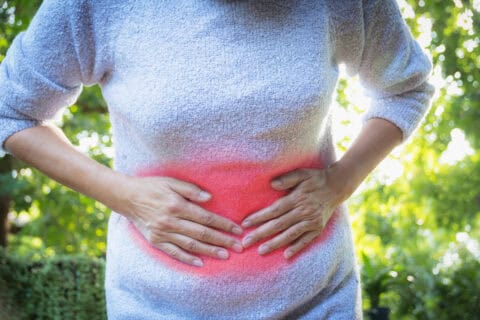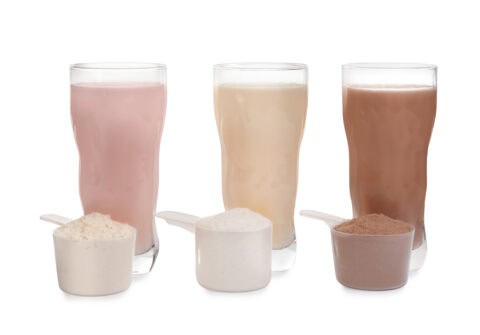The elemental diet is primarily known for its effectiveness in managing Small Intestinal Bacterial Overgrowth (SIBO) and Inflammatory Bowel Disease (IBD). However, this specialized liquid nutrition plan has applications far beyond these common conditions. As someone who has researched extensively in this area, I want to share how the elemental diet may benefit people suffering from various other health challenges.
What Is an Elemental Diet?
An elemental diet consists of liquid formulas containing pre-digested nutrients in their simplest forms:
- Amino acids instead of complete proteins
- Simple sugars instead of complex carbohydrates
- Medium-chain triglycerides as fat sources
- Essential vitamins and minerals
These formulations provide complete nutrition while giving your digestive system minimal work to do, essentially allowing it to rest and heal.
Elemental Diet for Lesser-Known Conditions
Diversion Colitis
Diversion colitis occurs when a section of the bowel becomes inflamed after being isolated from the functioning bowel during surgery (like a colostomy). Case studies show:
- Decreased bowel movements
- Resolution of rectal bleeding and mucus discharge
- Significant pain reduction
The theory is that elemental diets remove potential inflammatory antigens from the bowel, reducing autoimmunity and inflammation in the diverted colon.
Eosinophilic Esophagitis (EoE) and Gastroenteritis
Eosinophilic conditions involve immune-mediated inflammation of the digestive tract. Research highlights:
- 90% histologic remission rates in children with EoE
- 88% symptom resolution in adults after four weeks
- Significant decreases in inflammation markers
The hypoallergenic nature of elemental diets helps by eliminating potential food antigen exposures, allowing the inflamed tissues to heal.
Rheumatoid Arthritis (RA)
For those battling inflammatory joint conditions, elemental diets have shown:
- Improved grip strength
- Better Ritchie scores (a measure of joint tenderness)
- Reduced inflammation through “non-antigenic” properties
It’s worth noting that improvements typically aren’t sustained after returning to normal eating, making this approach more suitable as a temporary intervention.
Pancreatitis
Pancreatic inflammation can be extremely painful and difficult to manage. Limited research suggests:
- Clinical improvement in complicated severe acute pancreatitis cases
- Potential pain management benefits in chronic pancreatitis
- Reduced digestive demands on an inflamed pancreas
The low-fat versions of elemental diets may be particularly helpful as they further reduce pancreatic strain.
Celiac Disease and Dermatitis Herpetiformis
For people with refractory celiac disease (who don’t respond to standard gluten-free diets):
- Elemental diets provide completely gluten-free nutrition
- Easily digestible nutrients bypass damaged intestinal areas
- Potential improvement in associated skin conditions like dermatitis herpetiformis
Chemoradiotherapy-Associated Mucositis
Cancer treatment often causes painful mouth sores. Meta-analyses suggest:
- Supplemental elemental diets may help prevent oral mucositis
- Easily absorbed nutrients support healing of damaged tissues
- Complete nutrition during treatment when eating is difficult
How Elemental Diets Work
The benefits across these diverse conditions stem from several mechanisms:
- Hypoallergenic Properties: Removes potential food allergens and antigens
- Reduced Digestive Demand: Provides nutrition in pre-digested form
- Bacterial Modification: May “starve” harmful bacteria while altering intestinal flora
- Inflammatory Reduction: Limits exposure to irritants
- Complete Nutrition: Ensures nutritional needs are met despite digestive limitations
Challenges to Consider
Despite their potential benefits, elemental diets come with significant challenges:
- Poor Palatability: Often requires nasogastric tube administration
- Gastrointestinal Side Effects: Potential diarrhea due to hyperosmolality
- Cost: Formulations can be expensive
- Social Restrictions: Difficulty participating in normal eating activities
- Symptom Relapse: Common when returning to regular diet
When to Consider an Elemental Diet
You might consider discussing an elemental diet with your healthcare provider if:
- You’ve been diagnosed with one of the conditions discussed
- Traditional treatments haven’t provided sufficient relief
- You need nutritional support during healing
- You’re willing to commit to the restrictive nature of the diet
Final Thoughts
The elemental diet represents a valuable tool in the treatment arsenal for numerous conditions beyond the commonly associated SIBO and IBD. Its unique ability to provide complete nutrition while minimizing digestive demands makes it worth considering for those dealing with challenging health conditions.
Always work with qualified healthcare professionals, including a registered dietitian, before starting an elemental diet. They can help determine if this approach is appropriate for your specific situation, guide you through implementation, and monitor for any adverse effects.






